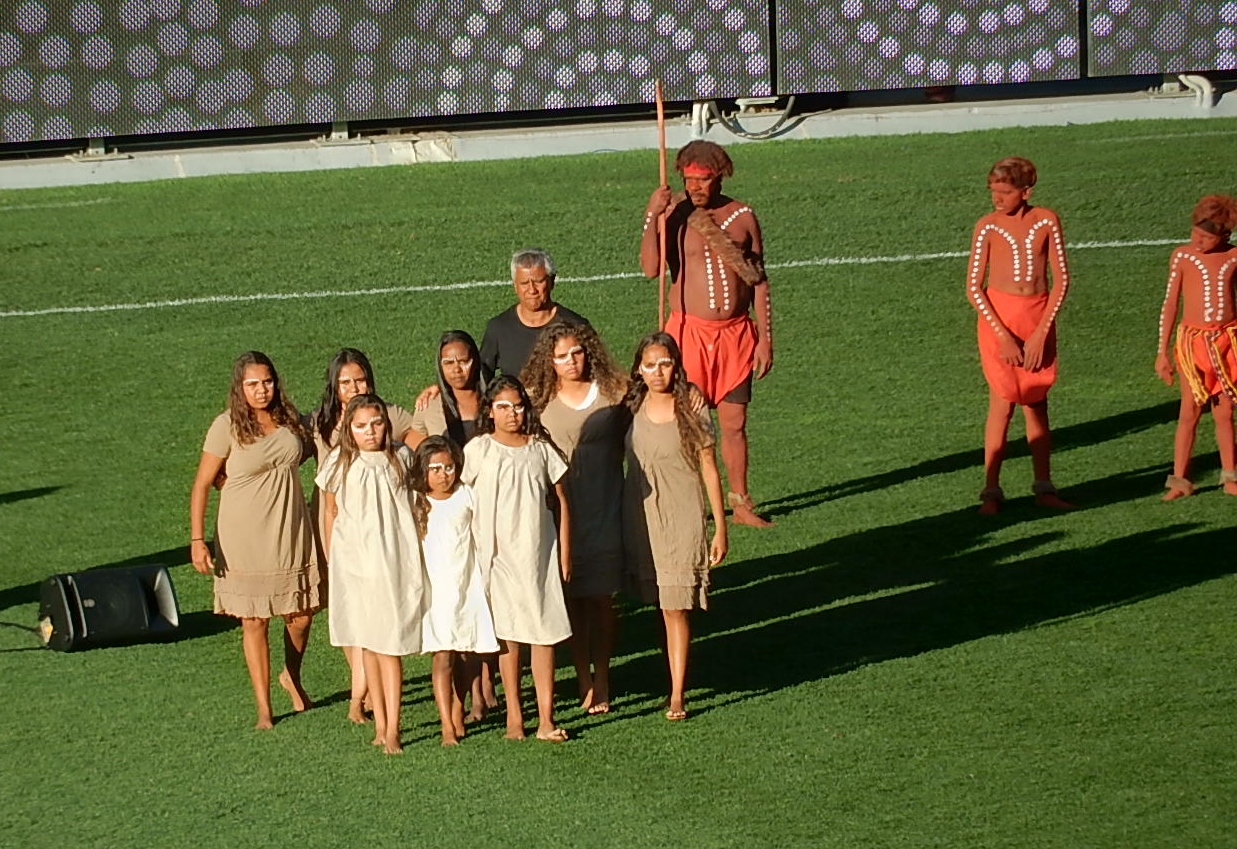In the Uluru Statement from the Heart, First Nations Peoples issue this invitation: to walk with us in a movement of the Australian people for a better future (2017). In order to walk together, it is critical to understand the issues which affect Aboriginal and Torres Strait Island people. The Wiyi Yani U Thangani (Women’s Voices): Securing Our Rights, Securing Our Future Report 2020 helps us to walk with our eyes open, particularly with regard to the issues facing Aboriginal and Torres Strait Islander women and girls.
One of the clear themes emerging from this report is the importance of families and communities to First Nations people. As the Report states: the purpose of Wiyi Yani U Thangani, to hear directly from women and girls about their lived realities, what matters to them, and what supports are needed to respond to the issues in their lives and to achieving their aspirations. The Report gives voice to First Nations women and girls across Australia. Here a Murray Island woman explains the centrality of culture:
Our identity is everything. Culture is everything. Our relationships with others, who are our elders, are everything, totems, Island dancing, traditional sacred dancing. Respect everyone where they live. Our law—no trespassing and obeying Laws. Family gathering and feasting together, sharing one another, helping each other in different times. (p. 72)
Pope Francis concurs in his encyclical Fratelli Tutti:
the word culture points to something deeply embedded within a people, its most cherished convictions and its way of life. A people’s culture is more than an abstract idea. It has to do with their desires, their interests and ultimately the way they live their lives. (#216)
So, what do we need to hear from First nation’s women and girls to walk alongside them as they strive to strengthen and nurture their families and their cultures?
- Aboriginal and Torres Strait Islander women want to live in strong, healthy and vibrant families and communities.
- Multiple forms of discrimination and inequalities, the conditions of poverty, systemic racism and intergenerational trauma have a corrosive effect on their cultural and social fabric.
- These issues … form the conditions for the high prevalence of family violence, drug and alcohol dependence, abuse and childhood trauma.
- They have a strong solidarity towards each other, forged through their heritage, lived experiences and inter generational responsibilities.
- They are calling for all Australian governments to significantly refocus and invest in early intervention and prevention supports.
- They have spoken to the fact that in the face of adversity and cycles of crisis, they are highly capable, resilient, intelligent and courageous.

… we are more than community members. We need to value the role we play in all these areas—as daughters, mothers, sisters etc. We are teachers, we are leaders, we are dancers, we are singers, we are good yarners. (Hobart women)
As we walk together let us continue to listen, learn and support our First Nations women and girls and advocate for them, and for their families and communities.
Information used in this Mercy Moment is copyright to © Australian Human Rights Commission 2020.
Reflection
How could you support First Nations women and children’s families and communities?
References: Wiyi Yani U Thangani Report and Community Guide at wiyiyaniuthangani.humanrights.gov.au
